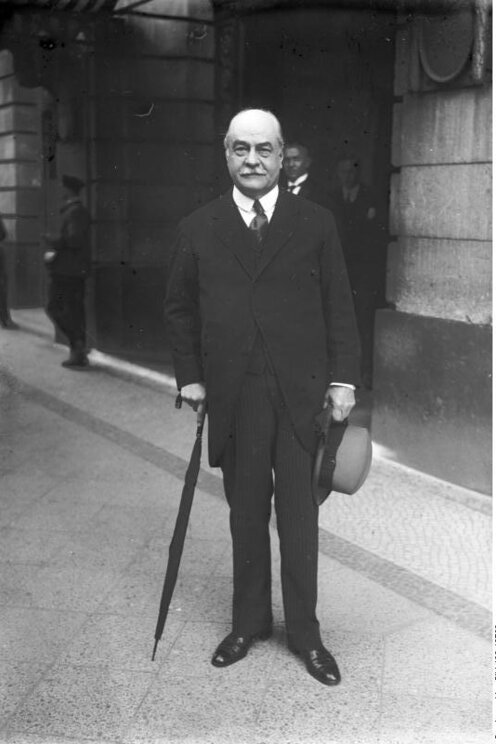A trip down the wiki rabbit hole

Here’s a weird little bit of historical arcana: the 1912 Republican presidential ticket featured a dead man on the ballot. William Howard Taft’s vice president James Sherman died just eight days before the election, and there was apparently no formal provision to deal with this eventuality (Frankly I don’t know what if anything now exists to deal with a similar situation).
Wikipedia informs me that “President Taft was left with no running mate, although Nicholas Murray Butler was designated to receive the electoral votes that Sherman would have received.” I have no idea what “was designated” means; perhaps LGM’s shock troops of historical and political trivia enthusiasts can unravel this mystery. In any event the USA had no vice president for more than four months, until the Wilson administration was sworn in in March.
I also learned a few things about Nicholas Murray Butler, who I had never heard of despite the fact that he was Columbia University’s president for 43 (!) years, and was considered a veritable font of wisdom by no less an authority than the Newspaper of Record:
He was so well-known and respected that The New York Times printed his Christmas greeting to the nation for many years during the 1920s and 1930s.
He was also a raging anti-Semite and Nazi sympathizer:
In 1919, Butler amended the admissions process to Columbia in order to limit the number of Jewish students (it became the first American institution of higher learning to establish an anti-Jewish quota). Butler’s policy was successful and the number of students hailing from New York City dropped from 54% to 23% stemming “the invasion of the Jewish student.”
And:
Butler was a longtime admirer of Benito Mussolini. He compared the Italian Fascist leader to Oliver Cromwell, and, in the 1920s, he noted “the stupendous improvement which Fascism has brought”.
Months after the 1933 Nazi book burnings, he welcomed the Nazi ambassador to the United States to Columbia and likewise refused to appear with a notable German dissident when the latter visited the university. Butler was criticized for his “remarkable silence” and complicity towards Hitler’s regime until the late 1930s.
Misty water-colored memories.
None of this interfered with the august members of the Swedish Academy awarding him the Nobel Peace Prize.
Speaking of prizes, a few years later Butler convinced the Pulitzer Prize committee’s fiction jury to reverse its decision to give the award to For Whom the Bell Tolls, which he found “offensive.” So nobody got the award that year.
It’s probably a good time to re-up Dorothy Thompson’s essay on who goes Nazi.


